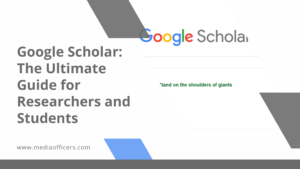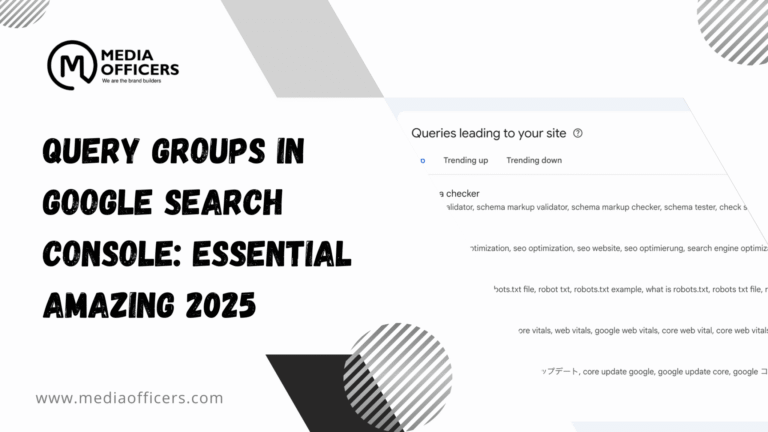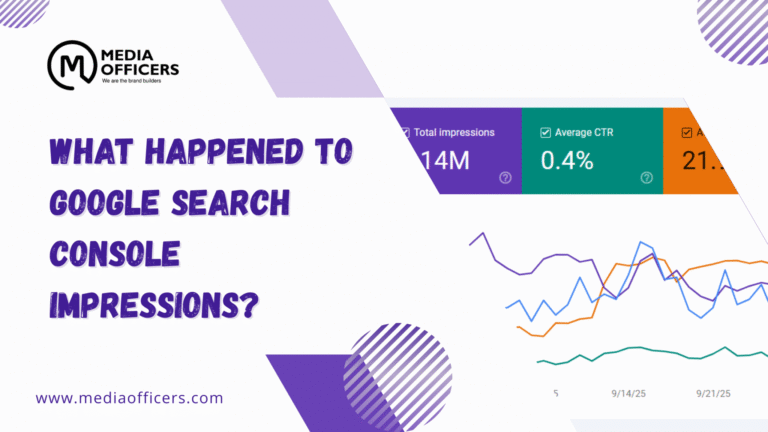Navigating the world of academic research can feel overwhelming, with countless sources, databases, and tools at your disposal. Enter Google Scholar, a free and powerful resource designed to streamline the research process for students, researchers, and academics alike. If you’re looking for a tool to help you find credible academic materials, manage citations, and track your research footprint, Google Scholar is your ultimate companion.
This guide will walk you through everything you need to know about Google Scholar—from its features and benefits to advanced techniques for effective use. Whether you’re a seasoned researcher or a first-time user, you’re bound to discover something valuable here.
What is Google Scholar?
Google Scholar is a specialized search engine focused on academic materials. Unlike the standard Google Search, which indexes general websites, Google Scholar indexes scholarly articles, theses, papers, books, and patents. It primarily focuses on resources from academic publishers, universities, and professional organizations.
How It Differs from Google Search
- Academic Focus: Google Scholar primarily indexes academic and scholarly content, offering peer-reviewed articles and other types of credible research.
- Advanced Metrics: Features such as citation tracking and author profiles are specifically designed for researchers.
- Limited Noise: Unlike traditional Google Search, Google Scholar minimizes irrelevant results from blogs, forums, and commercial pages.
Features of Google Scholar
Google Scholar boasts an impressive range of features tailored to support academic research. Here’s an in-depth look at what it offers:
Search for Academic Articles, Theses, and More
Google Scholar excels at providing access to:
- Academic journals
- Research papers
- Case laws
- Conference proceedings
- Books and theses
This focused catalog ensures you won’t have to sift through irrelevant search results to find exactly what you need.
Citation Tracking and Reference Management
One of its standout features is the ability to track citation relationships between papers. You can:
- View all studies citing a specific paper.
- Review references cited within an article.
- Automatically generate citations in multiple formats (e.g., APA, MLA, Chicago).
Google Scholar Profiles and Author Metrics
Researchers can set up Google Scholar profiles to:
- Display their published work.
- Highlight metrics such as citations, h-index (an author-level metric), and i10-index (number of publications with at least 10 citations).
- Track who’s referencing their work across disciplines.
How to Use Google Scholar Effectively
To make the most of Google Scholar, it’s essential to know some effective usage techniques.
Advanced Search Techniques
- Use quotation marks (“”) to search for exact phrases, e.g., `”machine learning trends in healthcare”`.
- Use the “author:” operator to find papers by a specific author, e.g., `author:”John Smith”`.
- Add keywords like “intitle:” to restrict search results, e.g., `intitle:”climate change”`.
Filtering and Refining Results
- Use the filters on the left-hand panel to refine results by year or find “recent articles” to stay updated.
- Look for [PDF] links next to articles to access open-access versions of papers.
Set Up Alerts for New Research
Stay on top of emerging studies by creating alerts for your favorite topics. Simply click the “Create alert” option and enter specific keywords or authors you’d like to track.
Benefits of Google Scholar for Researchers and Students

Google Scholar is a treasure trove of resources. Here are its key benefits:
Free Access to Scholarly Resources
Many paywalled works include accessible PDFs or previews thanks to open-access partnerships. Google Scholar bridges the gap for those who lack subscriptions to expensive journals.
Effortless Citation Generation
Forget manually formatting bibliographies. A quick click on the citation icon generates properly formatted references.
Open-Access Article Discovery
Google Scholar often links to institutional repositories or preprints, offering free versions of papers behind subscription paywalls.
Google Scholar vs. Other Academic Databases
While Google Scholar shines in simplicity and accessibility, it’s important to understand how it compares to other databases like Scopus, PubMed, and Web of Science.
Feature | Google Scholar | Scopus | PubMed | Web of Science |
|---|---|---|---|---|
Access | Free | Subscription-based | Free | Subscription-based |
Content Types | Broad range of materials | Journals, patents, & conference papers | Biomedical articles | Comprehensive, multidisciplinary |
Citation Metrics | Citation tracking via author profiles | More robust analysis tools | Limited to certain fields | Detailed citation reports |
User Interface | Simple and intuitive | More advanced search options | Focused on medical research | Optimized for academic researchers |
Strengths of Google Scholar
- Free and accessible.
- Comprehensive breadth of disciplines.
- Easy to use—even for beginners.
Limitations of Google Scholar
- Paywalled content can still pose issues.
- Less curated and lacks the rigorous quality control of databases like Web of Science.
Tips to Optimize Your Research with Google Scholar
Want to take your research game to the next level? Follow these tips:
Use Boolean Operators
- AND, OR, and NOT commands help broaden or narrow results (e.g., `education AND technology` or `education NOT online`).
Leverage Library Integration
Sign into your library account to connect Google Scholar to institutional resources for seamless access to premium papers.
Export Citations to Reference Managers
Import citations directly into tools like Zotero, EndNote, or Mendeley with just a couple of clicks.
Common Limitations and Challenges of Google Scholar
While Google Scholar is incredibly versatile, it’s not without its challenges:
- Accuracy of Sources: Unlike curated databases, Google Scholar may surface less credible or non-peer-reviewed research.
- Paywalled Content: Some important studies remain inaccessible unless you have institutional subscriptions.
- Limited Advanced Tools: Compared to Scopus or Web of Science, some users find the analytics tools on Google Scholar basic.
Despite these drawbacks, Google Scholar remains a powerful resource that democratizes access to educational materials.
Make the Most of Google Scholar
Google Scholar has cemented itself as an essential tool for students, researchers, and academics worldwide. Its ability to simplify research, manage citations, and offer free scholarly resources makes it a must-have for anyone in academia.
Are you ready to transform your research workflow? Start exploring Google Scholar today, and discover how it can elevate your academic success.




